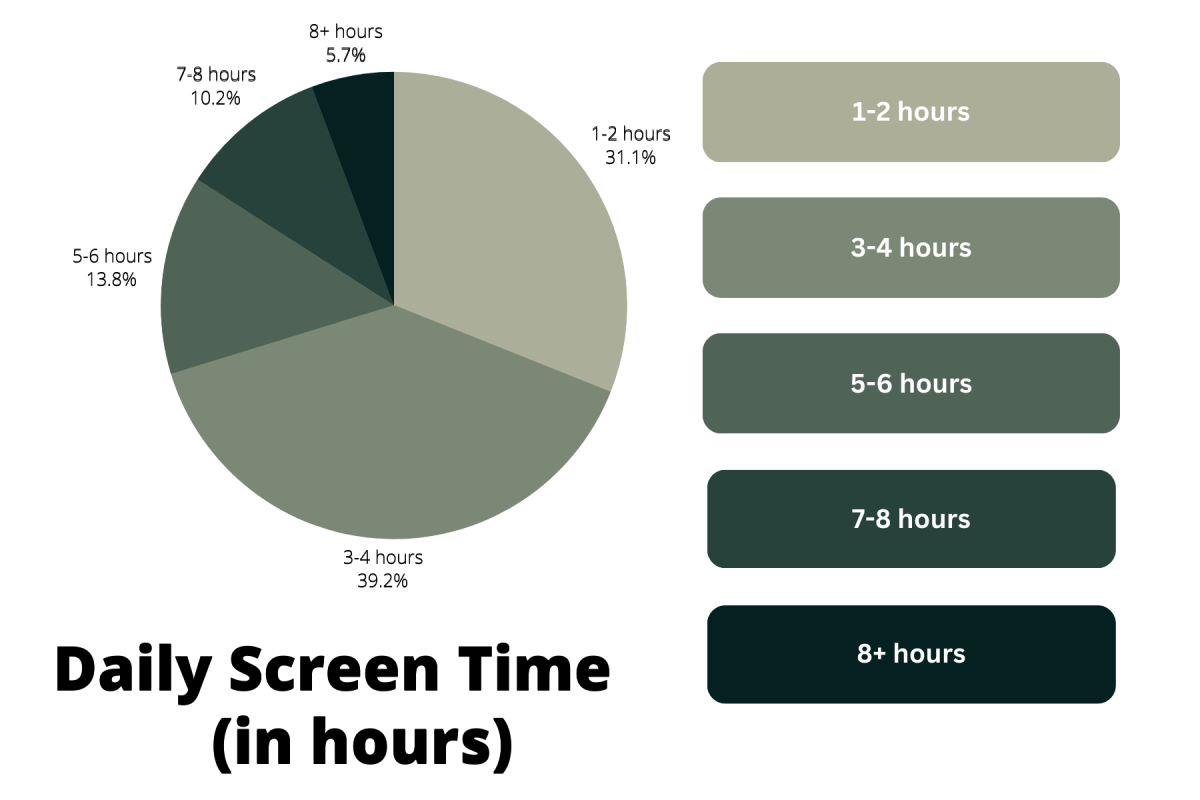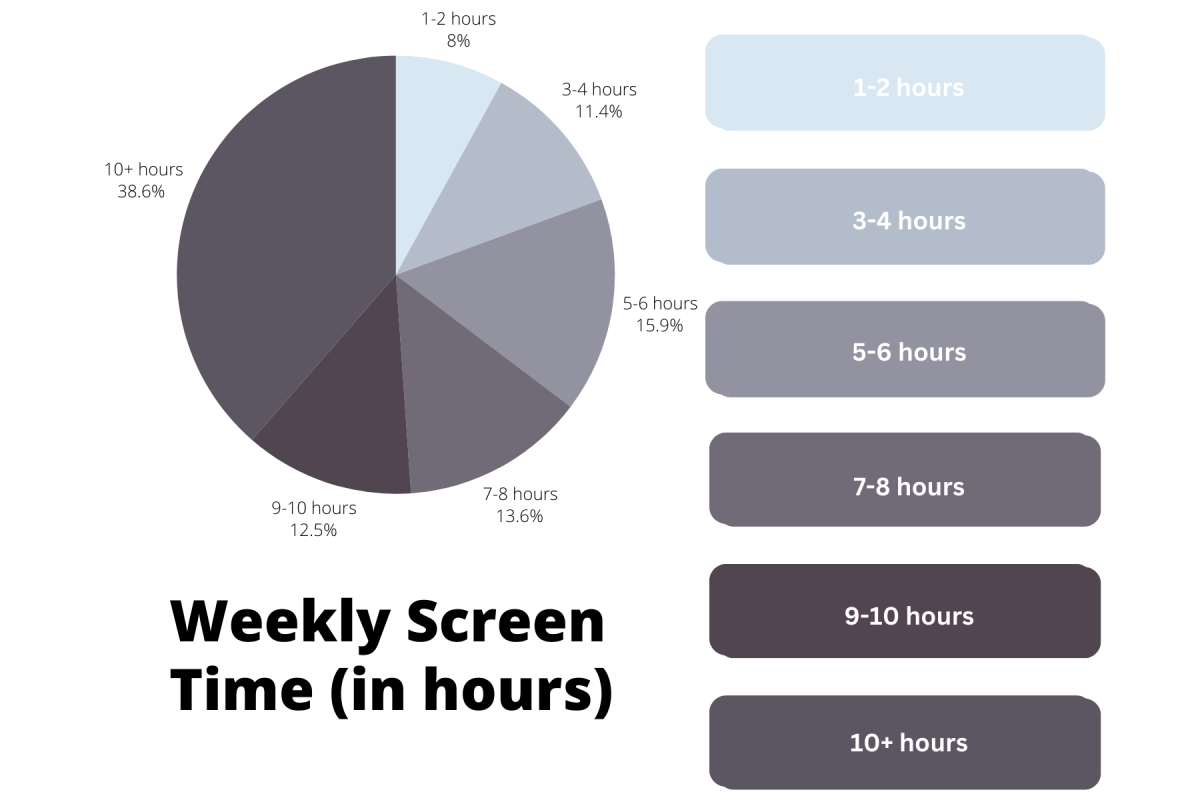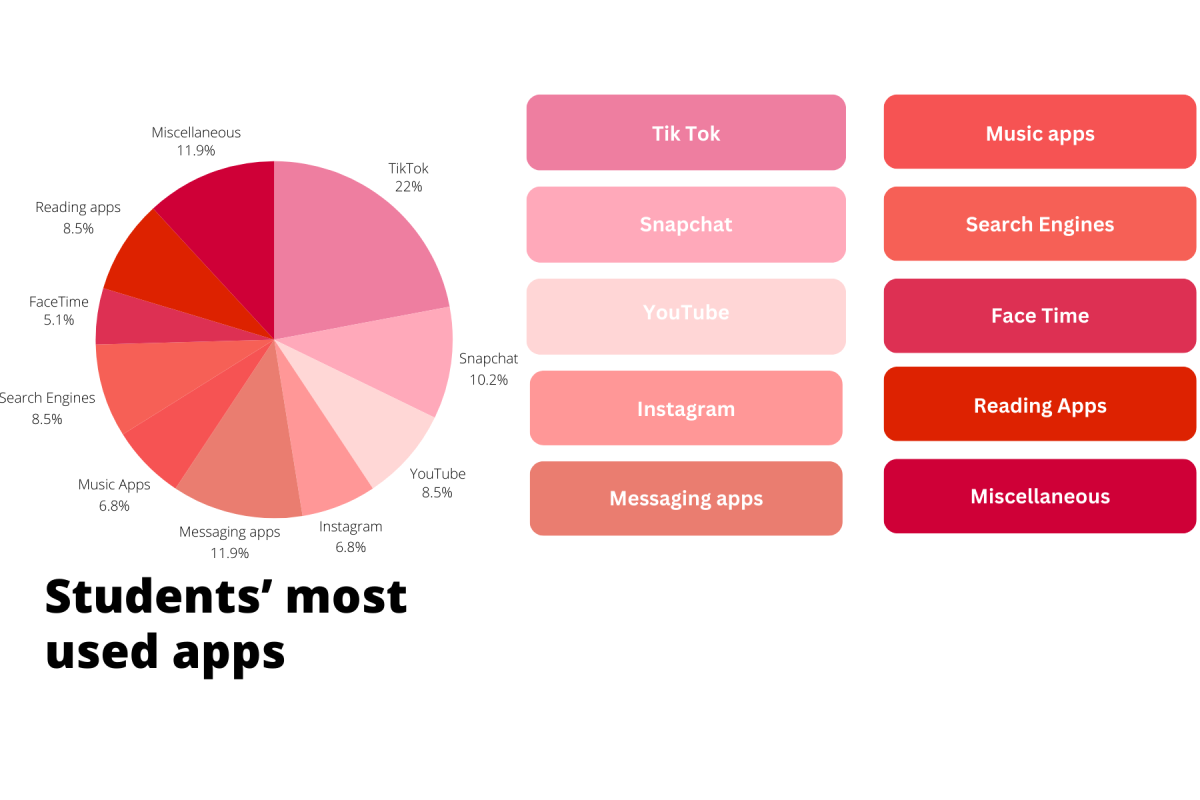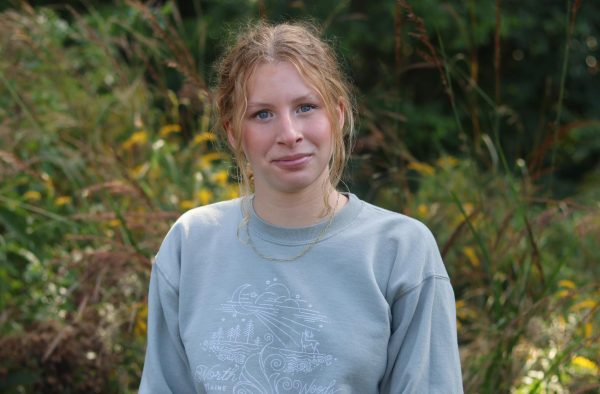In recent years, technology has become an increasingly popular resource in multiple levels of education across school districts. Using technology for educational purposes can increase access to educational websites and allow students to digitally turn in assignments. However, despite the positives to using technology, there are also some negatives.
The hourly use of technology varies for different people. According to a survey sent to Wayland High School students, some students’ outside of school screen time is one to two hours, while others use their screens for more than 10 hours.
“Before my sports season, I’d come home after school and [my screen time] would be four hours,” freshman Aine Chase said. “Now, [because of] sports, I don’t really have time after practice because I have to do homework, eat dinner, shower and more. [My screen time] is now around two to three hours.”
Along with using screens at school, some students turn to social media or alternate internet resources as a way of relaxing at the end of the day. However, some students find that using screens for leisure activities can result in them procrastinating schoolwork.

“My most used app is TikTok,” Chase said. “If I deleted TikTok, I think I would have way less screen time. It also makes me procrastinate and that’s not good. TikTok takes up too much space in my brain.”
Additionally, some students and adults use technology immediately when they wake up and right before bed. According to experts, screens radiate a light ray known as blue light, which can cause a person to have issues falling asleep. Having less sleep can result in a loss of focus during classes.
“[Technology] reduces your ability to go to sleep and that’s really carried by blue light,” Ophthalmologist, Neuroscientist and surgeon Eric Gaier said. “Blue light is the absolute worst when it comes to keeping us up. If you look at a screen that is not filtered in some way, it’ll keep you up for an hour. That also will affect [a student’s] learning if they’re not sleeping well.”
The combined hours between using electronics at school and home can result in various physical issues, including eye strain, myopia (nearsightedness) and amblyopia (lazy eye).
“One of the ways in which screens have an effect is by accelerating elongation or growth of the eye,” Gaier said. “This leads to a need for glasses, specifically a need to wear glasses in order to [see clearly] in the distance, also called nearsightedness or myopia.”
Some people use eye protection, such as blue light glasses, to prevent the harmful rays that come from technology, but some doctors say that there are other precautions that people should take. To protect eyes from screens, people can change their screen’s display to night shift, which contrasts the blue light by turning the screen yellow.

“There’s been no evidence that blue filtering glasses help with [prevention of blue light],” Gaier said. If you really want to do something about [reducing blue light], just reduce the blue filter, or the blue channel on your screen, and there are apps that are sometimes built into devices that’ll do that.”
In an effort to decrease students’ screen time, some teachers have tried to resort back to using paper for more assignments. However, some other teachers believe that turning away from screens would make teaching and grading more difficult. Some teachers use Google Classroom, Home Access Center and other online platforms to manage a majority of the students’ work and grades.
“Teachers would have to make sure students have all of those paper resources,” librarian Jennifer McGillis said. “It would take time to find them, copy them, and make sure everyone has enough copies.”

Although there are risks to using technology, many schools rely on screens to teach, learn, stay organized and for pleasure. Additionally, technology can be used for medical advances. Some doctors say that screens give an opportunity for scientists to research further on electronics before making major advances.
“Technology [carries] some risks, and we need to study and understand what those risks are,” Gaier said.“There are lots of people trying to study and understand technology, [which is] very important. I think we also need to look at and consider the potential benefits [of technology] and the opportunities to treat conditions and make people’s lives easier through convenience. It also affords an opportunity for innovation in medicine and science.”





![Last Wednesday, the Wayland School Committee gathered to discuss a number of topics regarding the health curriculum and Innovation Career Pathway course. Another large topic of conversation was the ways to potentially mitigate distracting cell phone usage. "These [phones] are going to distract your learning and social relationships," Superintendent David Fleishman said. "That's concrete right there."](https://waylandstudentpress.com/wp-content/uploads/2025/06/Screenshot-2025-06-04-at-9.49.31 PM-1200x886.png)



























![Troy Hoyt finishes the Boston Marathon, running for the Hoyt Foundation. T. Hoyt is the son of Hoyt Foundation CEO Russ Hoyt.
“[Running a marathon] might seem like a big thing, when it’s presented to you at first, but if you break it up and just keep telling yourself, “Yes, you can,” you can start chipping away at it. And before you know it, you’ll be running the whole 26 miles, and you won’t even think twice about it.” T. Hoyt said.](https://waylandstudentpress.com/wp-content/uploads/2025/04/C36E8761-1CBB-452E-9DF2-543EF7B1095E_1_105_c.jpeg)















































